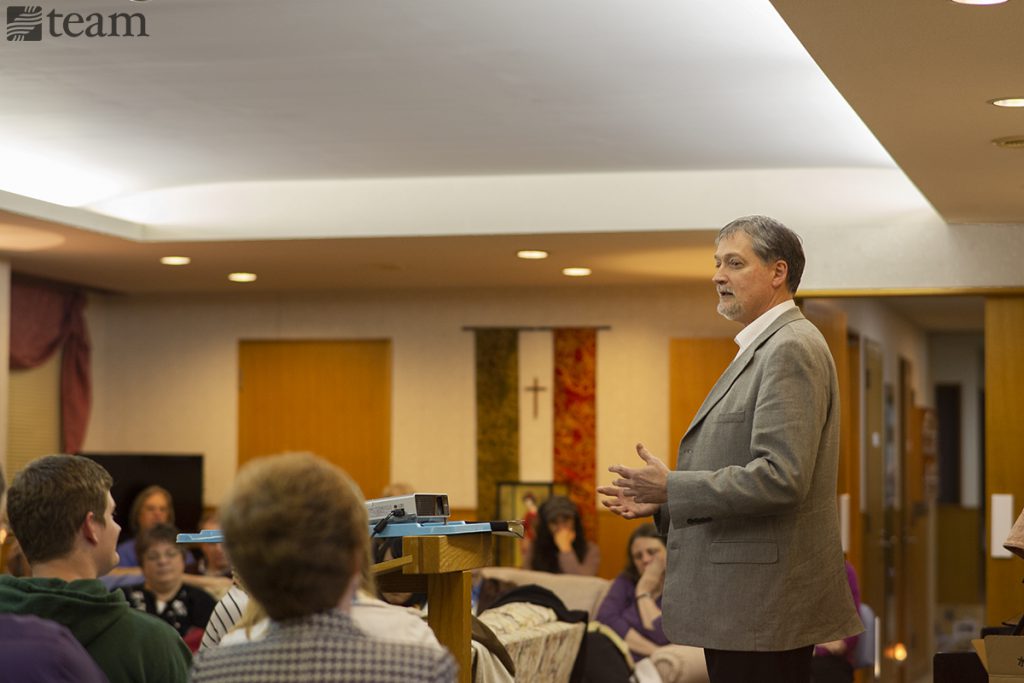
Missionary Life
12 Job Skills Missionaries Gain on the Mission Field
August 7, 2019
by admin

If you’re looking for a job, you’ve probably heard this advice: Just reframe your job skills to fit the job you’re looking at! But if you’re like a lot of missionaries, you probably have this lingering feeling that other people just don’t get it.
What value could the business world see in leading a home Bible study? Or raising kids in a foreign country? Or planting a church? Or any number of other ministries?
Well, today you’re going to find out.
Recently, I talked with career coaches, HR experts and former missionaries to create a solid list of transferrable skills most missionaries have. These reframes are tried and true — and they’ll look great on your resume.
Check out the list to see what matches your ministry life. And if it sparks fresh ideas, make sure to share them in the comments below!
Management
Even if you’re not an official leader within your sending organization, you’ve probably led people on the mission field in some capacity. Maybe you organized an outreach event, or you led a short-term mission trip or you organized the Sunday school program at your church. Look back at the times when you had to create a program from scratch or make a plan for your team. What were your goals, and what were your outcomes?
Mark Griffin, president of In His Name HR, says, “An entrepreneur should love that type of person, to say, ‘Hey, we’re starting this … new thing, and you’re someone who can get a lot of energy around a lot of people to go in a certain direction.’”
Sales and Networking
This one may seem a little uncomfortable at first. After all, missionaries don’t sell the Gospel. But here are some salesy things you probably have done on the mission field: struck up genuine conversations with strangers, put people at ease, explained foreign concepts in easy-to-understand language, walked people through big decisions and taught people how to share their experiences with others.
At the end of the day, sales is about building relationships. And if you’ve built a support team and served on the mission field, you know what that’s all about.
Adaptability
“If you can walk into another culture and learn to adapt, you can walk into a workplace and learn to adapt. Same thing. And a lot of people can’t,” says business consultant and missionary field trainer Ali Llewellyn.
As a missionary, you proved that you’re able to work in unfamiliar situations with unfamiliar people — and find solutions in the midst of discomfort. That’s valuable in any field.

Because of their experience with other cultures, missionaries know how to adapt to new environments quickly and easily.
Interpreting
The more the world globalizes, the more need there is for interpreters. This is especially true in metropolitan areas like Dallas, Texas, where Dr. Dottie Schulz works as a missionary care specialist for the Missions Resource Network. Schulz tells missionaries to send their resumes to police departments, schools with foreign students, English as a second language programs and hospitals.
“You never know what kind of niche might be available, so [missionaries] should list every language that they speak,” Schulz says.
Logistics
Julia Pferdehirt of Because Justice Matters shared about a young missionary who insisted she wasn’t qualified to do anything. But when Pferdehirt dove into the missionary’s experiences, the missionary shared how she had coordinated multiple three-month-long mission trips for 15 to 20 people at a time. She planned all the travel, visas, financial planning, lodging, food and coordination with local ministries. From that Pferdehirt and the missionary came up with a two-page list of transferrable skills.
Llewellyn encourages missionary moms to consider all the logistics they coordinated to move and settle their family overseas. These are valuable, management-level skills.
Training, Teaching and Public Speaking
There are a lot of areas a missionary could pull from here: speaking at churches during home assignment, teaching Bible studies, training church workers and leaders, teaching Sunday school classes, preaching on Sunday morning.
If you have a bachelor’s or advanced degree, these experiences can open doors for teaching jobs. But your experience can also open doors for jobs in corporate training or management consulting.

Whether it’s for teaching, fundraising or relationship-building, missionaries often have speaking that can open doors for them in the job market.
Innovation
If a company wants someone who thinks differently, a missionary is their prime candidate. No matter your ministry, you had to learn a new culture, figure out the local needs and find locally appropriate solutions. “Be clear … that you had no instruction manual and took initiative, which directly related to your success,” says Diana Waks, a research manager at the staffing agency Vanderbloemen.
When former missionary Brett Richstone applied for jobs, he openly shared about his three years in South Africa. The company that hired him saw it as proof that he could make bold moves.
Raising Up New Leaders
The best leaders don’t just see their own potential; they see the potential in others. Where have you had to identify potential indigenous leaders? How have you trained and supported them? When you gave them the reigns, what kind of success did you see?
Raising up new leaders is a highly valued skill in the business world — and one that few people can show that they’ve done successfully. If you’ve planted a church, this is an area where you can shine.
Consulting
When Llewellyn started her business consulting career, she was a youth pastor who had studied missions in seminary. NASA was looking for someone who could help their science labs communicate. It didn’t seem like a natural fit. But Llewellyn quickly realized that each lab was like its own culture. She told NASA they needed someone who could learn cultures and help them understand each other — just like a missionary does.
She got the job.
As a missionary, you’ve learned to observe people, what they do, what they value and what problems they face. Those are exactly the kinds of skills people are looking for in consultants.

Missionaries spend a lot of time working closely with other people. Through this, they learn how different people work, which is a perfect skill to have in a consulting job.
Fundraising
Nonprofits comprise the third largest sector of the U.S. workforce. And what do most nonprofit need? Fundraisers. Share how you raised your own support by building a network. Talk about the special projects you funded through appeals in your newsletter. The connection is easy and measurable.
Writing
To be clear, this isn’t for every missionary who’s written a newsletter. But this could be for missionaries who have written well-read blogs, Bible curriculums, life skills series and sermons. You may consider putting this on your resume if you played a key role in your ministry’s internal or external communications. If you want to build up your writing skills now, try reaching out to your missions organization or other missions blogs for writing opportunities.
Cross-Cultural Understanding
When Llewellyn advises returning missionaries, she encourages them to look into international business. Many of them don’t feel qualified because they don’t have business experience, but Llewellyn insists, “The business part you can pick up. You have the international part.”
As a missionary, you know how to learn cultures, communicate within them and build intercultural teams. And those are skills every international business needs.
Putting It All Together
This list is just the start. Once you start digging into your ministry experiences, you’re bound to find many more transferrable skills. As you do, here are a few things to keep in mind.
- Learn the language of your desired industry. Part of reframing your skills means leaving behind missionary-speak and using terms that will be familiar and comfortable for the people interviewing you. So, read industry publications and talk with people in the industry. Learn their buzzwords and what they value. You might even make a connection that will help you find a job.
- Remember that you aren’t the only one in the midst of transition. “The person sitting next to you might be in their second or third career, new to the workforce, a returning veteran or a parent stepping back in the office,” Waks says. Employers are learning to appreciate employees with rich life experiences. The fact that you didn’t gain your skills in an office may just be what helps you stand out!
- Find ways to share your story. People connect through stories, not lists of skills. Think of anecdotes that illustrate your skills. Share a short illustration in your cover letter. Call people on the phone to introduce yourself. And when you’re invited for a sit-down interview, let them see the real you: a passionate, creative, smart individual who might just be everything they’re looking for.
For more job hunting tips, check out our previous article, How to Find a Job After the Mission Field.

